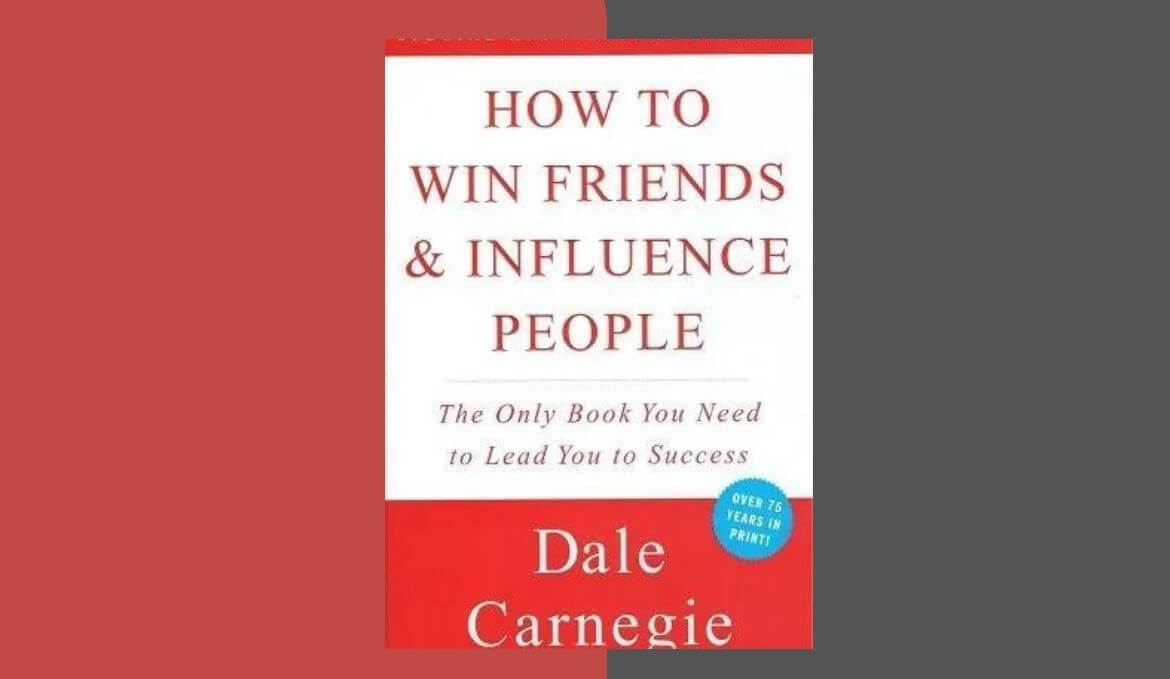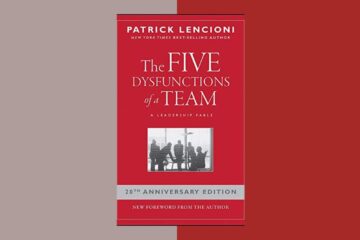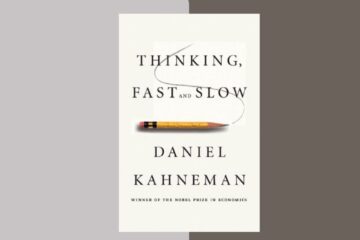Dale Carnegie’s book “How to Win Friends and Influence People” has been a cornerstone of personal development since its first publication in 1936. The book has sold millions of copies and has been translated into multiple languages, making it a global phenomenon.
At its core, the book teaches readers how to improve their social skills and build better relationships by applying a set of principles that are based on common sense but often overlooked in everyday interactions. Carnegie believed that understanding human nature and the psychology of communication was the key to success in both personal and professional settings.
The book is divided into four parts, each focusing on a different aspect of interpersonal communication. The first part deals with techniques for handling people, such as avoiding criticism and showing genuine appreciation. The second part focuses on ways to influence others, such as arousing an eager want and making people feel important. The third part discusses how to win people over to your way of thinking, including the importance of listening and talking in terms of the other person’s interests. Finally, the fourth part offers advice on how to lead and inspire others, including techniques for managing people and handling difficult situations.
Despite being written over 80 years ago, “How to Win Friends and Influence People” remains relevant today. Its principles are timeless and applicable to any situation where effective communication and relationship building are important. Whether you’re a business executive, salesperson, or simply someone looking to improve your social skills, this book offers practical advice and actionable tips for becoming more influential and successful.
Fundamental Techniques in Handling People
How to Win Friends and Influence People by Dale Carnegie is a timeless classic that has helped millions of people improve their social skills and build better relationships. In this article, we will explore the first part of the book, which focuses on fundamental techniques in handling people.
The book offers valuable insights and practical tips for handling people more effectively. By avoiding criticism, showing genuine appreciation, and practicing empathy, you can build stronger, more meaningful relationships that will benefit you both personally and professionally. So if you want to improve your social skills and become more influential, take the time to learn from the timeless wisdom of Dale Carnegie.
If You Want to Gather Honey, Don’t Kick Over the Beehive
The first principle in this part of the book is all about avoiding criticism. According to Carnegie, criticism is futile because it puts people on the defensive and often makes them resentful. Instead, he recommends focusing on the positive and finding ways to encourage and uplift others. This principle is particularly useful for those who work in management or sales, where negative feedback can quickly undermine morale and damage relationships.
The Big Secret of Dealing with People
The second principle is based on the idea that people want to feel important and valued. Carnegie argues that the best way to achieve this is by showing genuine appreciation and taking an interest in what others have to say. By listening attentively and giving people the respect and attention they deserve, you can build strong, lasting relationships that are based on mutual respect and understanding.
He Who Can Do This Has the Whole World with Him. He Who Cannot Walks a Lonely Way
The third principle is about the power of empathy and putting yourself in other people’s shoes. By understanding their perspective and showing empathy, you can build trust and rapport with others, even in difficult situations. This principle is particularly important for leaders and managers, who often need to navigate complex interpersonal dynamics and build consensus among diverse groups of people.
Six Ways to Make People Like You
In the second part of “How to Win Friends and Influence People,” Dale Carnegie shares six practical techniques for making people like you. Let’s explore each one in detail.
Do This and You’ll Be Welcome Anywhere
The first technique is all about showing genuine interest in others. Carnegie suggests that people are most interested in themselves, so by asking questions and actively listening to what others have to say, you can build rapport and make a positive impression. This technique is particularly useful in social situations where you may not know many people, as it allows you to connect with others and learn more about them.
A Simple Way to Make a Good First Impression
The second technique is all about the power of a smile. According to Carnegie, a warm and genuine smile can help you make a great first impression and put others at ease. This technique is particularly useful in business settings, where a friendly and approachable demeanor can help you build trust and establish strong relationships with clients and colleagues.
If You Don’t Do This, You Are Headed for Trouble
The third technique is based on the importance of remembering people’s names. Carnegie argues that a person’s name is the sweetest sound they will ever hear, so by making an effort to remember and use people’s names, you can make a lasting impression and build a sense of connection and familiarity.
An Easy Way to Become a Good Conversationalist
The fourth technique is all about becoming a good listener. Carnegie suggests that listening attentively and showing genuine interest in what others have to say is the key to being a great conversationalist. By asking open-ended questions and avoiding interrupting, you can create a positive and engaging dialogue that helps build rapport and trust.
How to Interest People
The fifth technique is all about finding common ground and shared interests. Carnegie suggests that by finding topics that interest both you and the other person, you can create a strong bond and build a sense of connection. This technique is particularly useful in social situations, where finding common ground can help break the ice and make conversation flow more easily.
How to Make People Like You Instantly
Carnegie starts this section with a simple but powerful statement: “You can make more friends in two months by becoming interested in other people than you can in two years by trying to get other people interested in you.” In other words, the key to making people like you is to show a genuine interest in them and their lives.
How to Win People to Your Way of Thinking
It is a classic self-help book that provides valuable insights on how to build strong relationships, win people over, and achieve success in life. Part three of the book focuses on how to win people to your way of thinking, and provides practical advice on how to persuade and influence others. In this article, we will explore the key concepts and ideas presented in this section of the book.
You Can’t Win an Argument
The first chapter in this section emphasizes the importance of avoiding arguments. According to Carnegie, arguing is a losing game as it only leads to resentment and hard feelings. He suggests that it is much more effective to avoid arguments and instead focus on finding common ground with others. By acknowledging their point of view and showing empathy towards their feelings, we can create a more positive and constructive dialogue that leads to mutual understanding.
A Sure Way of Making Enemies – and How to Avoid It
The second chapter expands on the idea of avoiding arguments by highlighting the dangers of criticism. Carnegie notes that criticizing others is a sure way of making enemies, as it can cause them to become defensive and resentful. Instead, he suggests that we should strive to be understanding and tolerant of others, and focus on building positive relationships based on mutual respect.
If You’re Wrong, Admit It
The third chapter is perhaps one of the most important in the book. Here, Carnegie stresses the importance of admitting when we are wrong, and apologizing for our mistakes. He argues that this is a powerful way of building trust and credibility with others, and can help to diffuse tense situations and avoid conflicts. By acknowledging our faults and shortcomings, we show others that we are humble and willing to learn from our mistakes.
A Drop of Honey
The fourth chapter provides practical advice on how to influence others using positive reinforcement. Carnegie suggests that we should focus on praising others for their strengths and accomplishments, rather than criticizing them for their weaknesses. By using positive feedback, we can help to build others up and make them feel good about themselves, which in turn can lead to greater cooperation and collaboration.
The Secret of Socrates
One of the most effective ways to persuade someone is by asking them questions. Socrates, the ancient Greek philosopher, was a master of this technique. Instead of telling people what to think, he would ask them questions that would help them come to their own conclusions.
Carnegie recommends using this approach in your own interactions. Instead of arguing with someone, ask them questions that will help them see your point of view. This approach is much more effective than simply telling someone they’re wrong.
The Safety Valve in Handling Complaints
Nobody likes to hear complaints, but they’re an inevitable part of life. Instead of getting defensive or dismissive when someone complains, Carnegie suggests taking a different approach. First, listen attentively to the person’s complaint. Show that you understand their point of view and that you take their concerns seriously. Then, try to find a solution that satisfies both parties.
By handling complaints in this way, you can turn a negative situation into a positive one. You’ll show that you’re willing to listen and work towards a resolution, which will help build trust and respect in your relationships.
How to Get Cooperation
In order to get people to cooperate with you, Carnegie recommends focusing on their interests and desires. Ask yourself, “What’s in it for them?” By showing that you understand their motivations and are willing to work towards a shared goal, you’ll be much more likely to get their cooperation.
Carnegie also stresses the importance of showing appreciation and gratitude. When people feel that their efforts are valued, they’re more likely to continue cooperating with you in the future.
What Everybody Wants
Carnegie argues that there are three things that everyone wants: to feel important, to be appreciated, and to belong. By recognizing and fulfilling these needs in others, you’ll be able to build strong, lasting relationships.
To make someone feel important, give them your undivided attention and show that you value their opinions. To show appreciation, express gratitude and acknowledge their contributions. And to help someone feel like they belong, find common ground and work towards shared goals.
An Appeal That Everybody Likes
When you need to persuade someone, Carnegie suggests making an appeal that will appeal to their self-interest. Frame your request in terms of what’s in it for them, and be specific about the benefits they’ll receive.
Carnegie also recommends using vivid, emotionally charged language to make your appeal more compelling. By tapping into someone’s emotions, you’ll be able to make a stronger, more persuasive case.
The Movies Do It. TV Does It. Why Don’t You Do It?
In this chapter, Carnegie emphasizes the power of storytelling. Stories have a unique ability to capture people’s attention and engage their emotions. By using stories to illustrate your points, you’ll be able to make a stronger, more memorable impression.
Carnegie also suggests using analogies and metaphors to build on the power of storytelling. Analogies and metaphors can help to explain complex ideas in simple terms and make them more relatable to your audience.
When Nothing Else Works, Try This
In some situations, it can be difficult to get people to see your point of view. When all else fails, Carnegie recommends trying a different approach. Instead of trying to convince someone directly, ask them for advice. This approach is known as the “Benjamin Franklin Effect.”
The idea behind this approach is that when we do someone a favor, we tend to like them more. By asking someone for advice, you’re giving them the opportunity to help you and feel good about themselves in the process. This can help to build rapport and open the door to future cooperation.
In conclusion, Part Three of “How to Win Friends and Influence People” offers valuable insights into the art of persuasion. By focusing on the needs and desires of others, using storytelling and emotional language, and trying different approaches when necessary, you can build strong, lasting relationships and achieve your goals. These principles are just as relevant today as they were when the book was first published, and they offer a timeless guide for success in both personal and professional relationships.
Conclusion of Key Takeaways
“How to Win Friends and Influence People” by Dale Carnegie is a timeless classic that offers practical advice on how to improve one’s interpersonal skills and become more successful in both personal and professional relationships. Through the use of real-life examples and anecdotes, Carnegie provides readers with a step-by-step guide on how to build strong, lasting relationships with others.
One of the key takeaways from the book is the importance of showing genuine interest in other people. By asking questions and actively listening to others, we can learn more about them and build rapport, which is crucial for effective communication and building trust. Carnegie also stresses the importance of being positive and avoiding criticism, which can damage relationships and erode trust.
Another key theme in the book is the power of empathy. By putting ourselves in other people’s shoes, we can better understand their perspective and respond in a way that is respectful and considerate. This is particularly important in conflict resolution, where a willingness to listen and compromise can go a long way towards finding a mutually beneficial solution.
Finally, the book emphasizes the importance of being honest and genuine in our interactions with others. People can sense when we are being insincere or manipulative, and this can undermine our efforts to build strong relationships. By being authentic and true to ourselves, we can create more meaningful connections with others.
Overall, “How to Win Friends and Influence People” is a valuable resource for anyone looking to improve their interpersonal skills and become more successful in their personal and professional relationships. By following Carnegie’s advice on how to show genuine interest, be positive and empathetic, and be honest and authentic, readers can become more effective communicators and build stronger, more lasting relationships with others.



